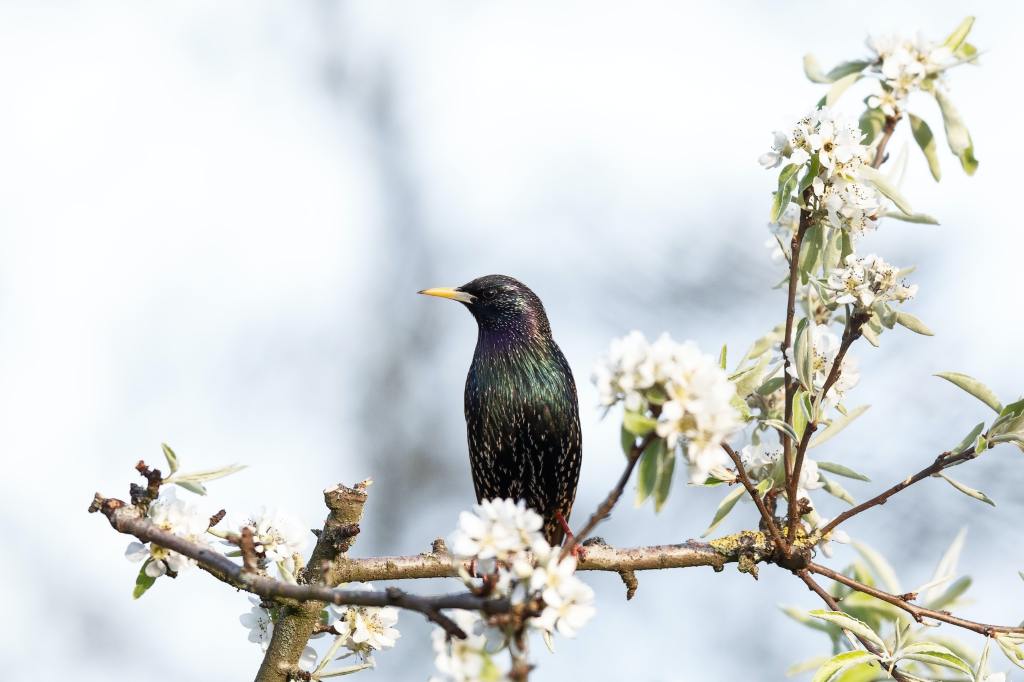
Language death occurs when a speech community loses its competence in its language variety, until it reaches a point where no more native or fluent speakers exist.
A tale used to be told about the end of language. It went like this.
A monk stood in contemplation on a hillside at twilight.
As the sun dipped lower and the valley’s shadows grew, a flock of starlings rose in the darkening sky. Their numbers multiplied in rhythmic ripples until the liquid beads of their consciousness merged into one fluid wave.
The monk felt his own thoughts dissolve, like an eroding shoreline, swept up in the birds’ murmuration, and he was enlightened.
He travelled into the valley to share with the people there the pathway to wholeness.
His teachings spread like a mighty wave, sweeping up the distracting thoughts of all the people in its wake. As their thoughts slipped away, so did their language.
No one knows this story now but me.
I am the one to whom language has been restored.
It came to me as I stood on the hillside at sunrise, contemplating the birdsong. From the richly layered harmonies of that dawn’s chorus, one strain rose above, distinct and piercing. Each note of the melody made itself known as singular, like drops of dark ink on a white page.
The persistent soloist set words to its tune.
Startled, I turned to see a solitary starling casting its shadow on my shoulder, dropping shimmering feathers as it flew away.
Would you like to know more about this story? Watch the video I made about it. I also discuss ‘The end of language’ in Episode 66 of Structured Visions.
One thought on “The end of language”